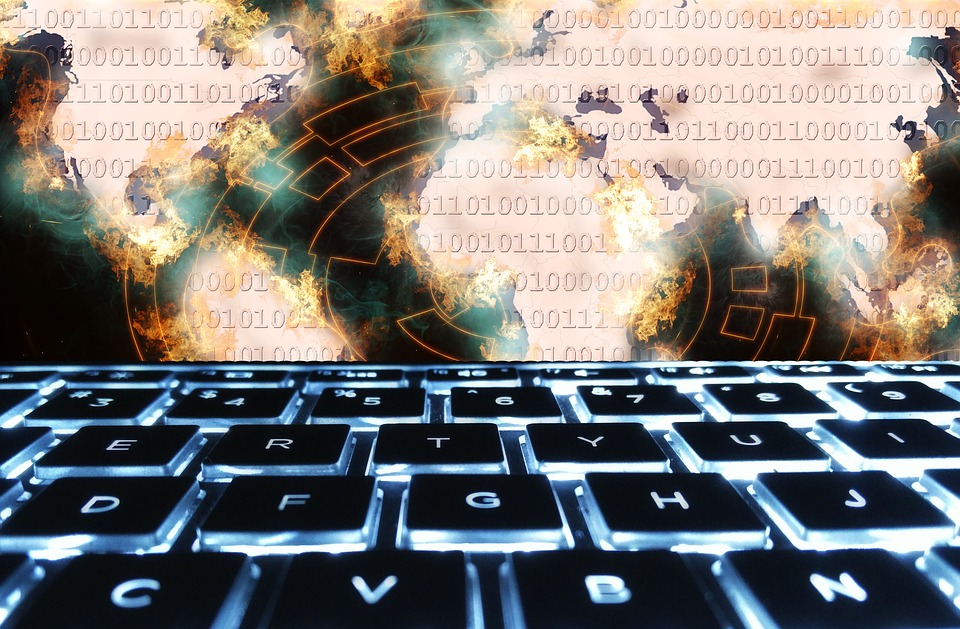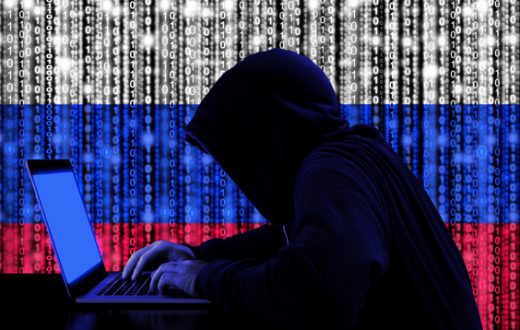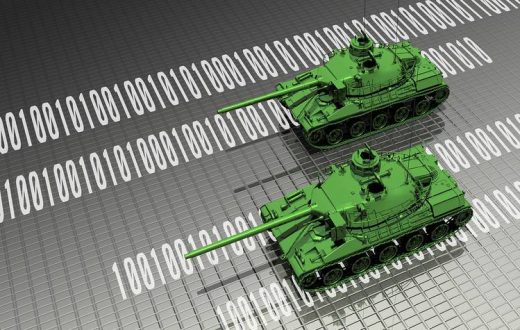This paper will explains in two parts, why Cyber war will not take place.
The Importance of Information
The global security environment has changed dramatically after the cold war. At the end of twentieth century the United States became a clear winner in military competition with its main rival, Soviet Union. And “the spread of weapons of mass destruction and the incidence of terrorism have raised serious concerns regarding the defence of the homeland that for the better part of two centuries was a strategic sanctuary” (Rattray 2001, p. 7).
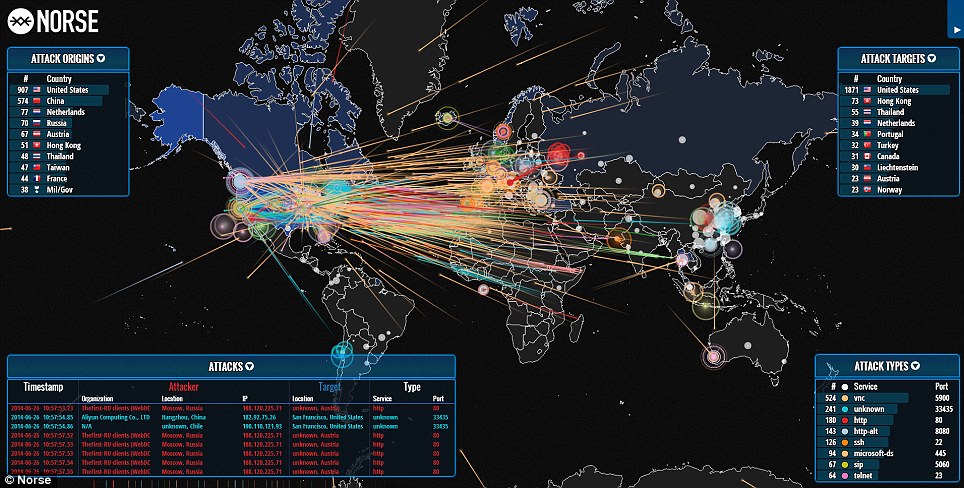
Distinguishing mark of this period is transition from industrial society to information one, in which information is becoming the most important resource in comparison to material or energetic ones. As it is well known the resources is the element of economic potential that used to achieve specific aims and goals of economic activity. Furthermore, categories, that are involved in the economic turnover, such as material, financial, labor and natural resources have become a commonly used and familiar to anyone. However, the concept of information resources is commonly used but not sufficiently appreciated by the modern society.
The information resources are individual documents and collections of papers in information systems, like libraries, archives, databanks, funds and other cyber systems. Also the information resources are property and responsibilities of relevant bodies and organizations and subject to protection. It should be mentioned that information nowadays is one of the most powerful resource that used by society, not only because it could be transferred into emolument, but also because of the control that individual would have by information ownership. In these circumstances, the important aspect of cyber security arises and therefore protection of data became significant. As a matter of fact, there are many reasons to secure information, which are to prevent the disclosure, leakage and unauthorized access to the protected data; prevention of illegal actions like destruction, reformation, misrepresentation, stealing and prohibition; ensuring the legal regime of documented information as an object of property; protection of the legal rights of citizens to preserve the privacy and confidentiality of personal data held in the information systems and so forth.
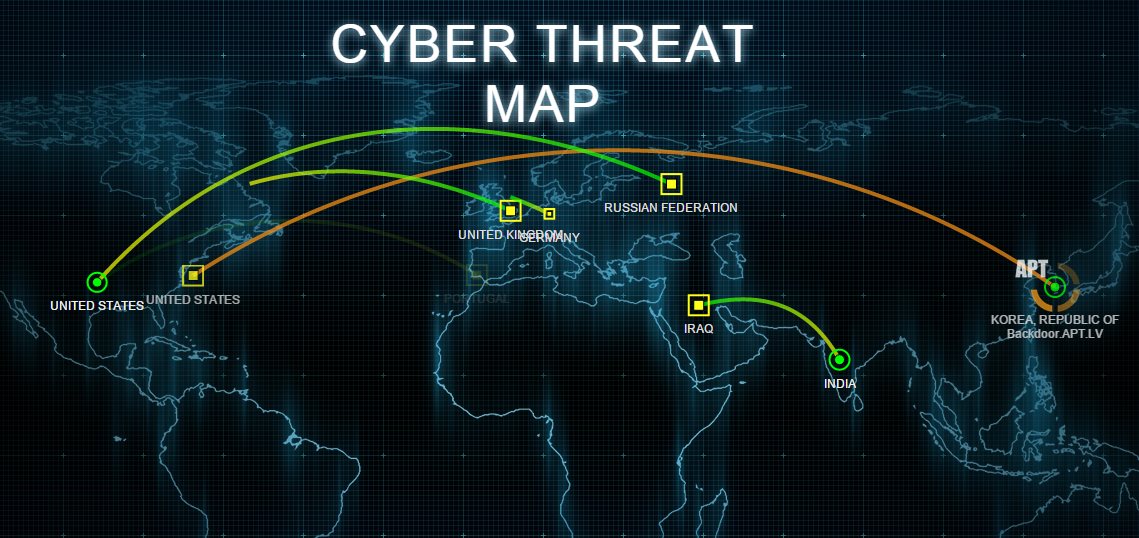
Information War or Cyber War?
There is a difference between information war and cyber war, although they are both belonging to the digital war. The information war or as it is also known- propaganda, it is content war that affecting individual’s mind, responsiveness and understanding of world order. The information war is taking place during times of crisis and conflicts to encourage certain ideas and understanding of current events.
The cyber war is completely different, it is the using of specific source codes in order to damage, intercept control, making faults to the system or destruction of physical objects. To make it clear the physical objects should be understood as computers or computer networks, objects of financial, industrial and energy infrastructure, military bases, where computers are used and telecommunication networks. It should be mentioned that cyber war is anonymous war that could not be identified and detected immediately after it started. Moreover, one of the main dangers of cyber wars is the time, as the invasion to the computer system could be done at one time and actual effect would be later. That is why there is no clear evidence of the beginning of war. Furthermore, there is a possibility that the cyber war would not be detected, as all the actions are anonymous and could be disguised as technological fault or human error, and as a result the cyber attack would not be discovered.
Cyberspace Charateristics
The cyberspace attacks have never been as much appreciated, as it is today, the awareness of cyber security has increased dramatically in the last decade. One of the brightest example of this, is the interview with director of the Center for Strategic and International studies, James Lewis, where he said that “Nobody argues- or at least no sane person argues- that a cyber attack could lead to mass casualties. It’s not in any way comparable to weapons of mass destruction. In fact, what a lot of people call them is ‘weapons of mass annoyance’ (2003). In comparison to the following excerpt from ‘Securing cyberspace for the 44th presidency: a report of the CSIS commission on cyber security for the 44th Presidency’ (2008), where James Lewis was a project director: “The commission’s three major finding are 1.
Cyber security is now a major national security problem for the United States; 2. Decisions and actions must respect privacy and civil liberties; 3. Only a comprehensive national security strategy that embraces both the national and international aspects of cyber security will make us more secure”. These citations clearly show a substantial change of Lewis’s opinion in a relatively short period of time. There are many reasons of not appreciating the need for cyber security. Firstly, it is the fact that cyber space does not demonstrate any significant harm to anyone and therefore has not resulted in human injuries.
Secondly, the cyber space is not tangible, although it is presented in our daily life. Thirdly, the common opinion that technology and cyber space and its ability to communicate the whole world are only creating benefits for the modern society but in reality generates a pseudo understanding of current events in the global arena. As a result, the potential for cyber wars and crimes does not come across individual’s mind, however in the military and state organizations these terms are well respected and commonly used in the national security community. There is a special term that used in the security studies, ‘The Revolution in Military Affairs’ or RMA, although there is no clear explanation for this term, it basically means the combination of new technologies, in particular information technologies, into military equipment, principles, establishments and, eventually, war fighting actions (Dunlap 1998).
How IT systems have become a weapon
The speed of distribution of information and technology in the world is rising dramatically and according to the Moore’s law the level of technology is doubling every 18 months (Petersen 1998). Cyberspace has become a new territory for the exchange of digital data to spread business activities, made available entertainment in online regime, lent education available to everyone, and variety of other activities. Simultaneously, the new raising fear of a new form of conflict has appeared, the cyber warfare. “Definitions of cyber warfare range from those narrowly focusing on the improved use of electronic means to achieve advantage on conventional battlefield to very broad definitions conceptualizing information warfare as any effort to affect information systems in peacetime and wartime (Rattray 2001, p. 9).
The IT systems have become a weapon and a target at the same time and emerged a new form of national security risks. As a result, a new form of belligerency has been introduced to the world, that is cyber aggression. According to Jeffrey Carr (2010) there are five types of cyber aggression first one is cyber attacks in contradiction to state or critical civilian websites or networks without supplementary military force; the second one is the virtual attacks against government or dangerous individual websites or networks with accompanying military forces; the third one is attacks against internal political opponents, the fourth is cyber interventions into critical infrastructure and systems and the last one is actions of cyber espionage. Where the critical infrastructure means “the underlying sectors that run our modern- day civilization, ranging from agriculture and food distribution to banking, healthcare, transportation, water, and power” (Singer & Friedman 2014, p.15).
It should be mentioned that each one of these stood apart in the past, but now due to linkages in the cyber space and information technology all bound together, and often known as ‘supervisory control and data acquisition’ or SCADA systems. “These are the computer systems that monitor, adjust switching, and control other processes of critical infrastructure” (Singer & Friedman 2014, p. 15). Using SCADA systems or any other recently introduced technologies by modern liberal states is proving to be loss of privacy. Countries are trying to obtain an ultimate power of surveillance over citizens within state using technologies like eavesdropping, face recognition and suchlike. Although governments are doing it in order to observe potential terrorist group, they are exposing the entire nation to extreme level of monitoring.

